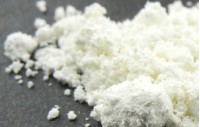
Buy 4-HO-DPT for sale online - USA vendor

- FREE shipping, 6-7 days delivery time
- Inner sending exist.
The main payment option is Bitcoin. As extra ways WU, MG.
We alwayse provide FREE samples of Top products with the main order.
Loyalty program exist, second order will be - 5%OFF
Safely work only with us! We provide - re-shipment guarantees.
Here you'll discover unused lawful items of immaculate quality.
Some time recently purchase if you don't mind make beyond any doubt that the items beneath your curiously are lawful in your country.
We do not offer a pharmaceutical items or beneath control items.
Table of Contents
- Introduction to 4-HO-DPT
- Chemistry of 4-HO-DPT
- Pharmacology of 4-HO-DPT
- Subjective Effects of 4-HO-DPT
- Toxicity and Harm Potential
- FAQ (Frequently Asked Questions)
- Legal Status of 4-HO-DPT
Introduction to 4-HO-DPT
4-HO-DPT, also recognized as 4-hydroxy-N,N-dipropyltryptamine and occasionally referred to as Procin, stands as a psychedelic substance belonging to the tryptamine class. Initially synthesized by Alexander Shulgin, its documentation finds its place in his book TiHKAL (Tryptamines I Have Known and Loved). Essentially, it manifests as the 4-hydroxyl analog of DPT.
Synthesis and Origin
The synthesis of 4-HO-DPT is a meticulous process, contributing to its relative scarcity even within the realm of substituted tryptamines. Its origins trace back to the pioneering work of Alexander Shulgin, renowned for his contributions to psychedelic chemistry and pharmacology. The compound is intricately detailed within his seminal text, TiHKAL, shedding light on its synthesis and properties.
Usage and Acquisition
Today, 4-HO-DPT finds application both in recreational settings and as an entheogenic compound, wherein individuals seek altered states of consciousness for various purposes. However, its usage remains relatively limited owing to several factors, including its scarcity and the challenges associated with its synthesis.
Recreational and Entheogenic Use
Enthusiasts often seek 4-HO-DPT for its potential to induce profound psychedelic experiences. Its usage as an entheogen reflects a broader cultural and spiritual interest in altered states of consciousness. However, due to its rarity and limited historical usage, its recreational and entheogenic applications remain relatively niche.
Acquisition through Research Chemical Vendors
The acquisition of 4-HO-DPT primarily occurs through online research chemical vendors. These platforms cater to individuals seeking novel psychoactive substances, often bypassing traditional regulatory frameworks. The online marketplace has facilitated access to a wide array of substances, including 4-HO-DPT, albeit with varying degrees of legal oversight and quality control.
Chemistry of 4-HO-DPT
4-HO-DPT, known scientifically as 4-hydroxy-N,N-dipropyltryptamine, represents a synthetic indole molecule belonging to the tryptamine class. Tryptamines, characterized by a bicyclic indole heterocycle linked to an amino group via an ethyl side chain at R3, constitute the core structure of this compound. At R4 of its indole heterocycle, 4-HO-DPT features a hydroxyl functional group (OH−). Additionally, it contains two propyl chains bound to the terminal amine RN of its tryptamine backbone (DPT).
Structural Relations
4-HO-DPT serves as the 4-hydroxy analog of 4-AcO-DPT and stands as the N-substituted dipropyl homolog of psilocin (4-HO-DMT). These structural relationships underscore its placement within the broader context of tryptamine psychedelics.
Pharmacology of 4-HO-DPT
Further information: Serotonergic psychedelic
Like many psychedelic tryptamines, 4-HO-DPT is believed to primarily function as a 5-HT2A partial agonist. The psychedelic effects associated with its consumption are attributed to its binding efficacy at the 5-HT2A receptors. However, the precise mechanisms underlying these interactions and how they translate into the psychedelic experience remain incompletely understood.
Dosage Guidelines
Understanding the dosage thresholds for 4-HO-DPT is crucial for safe and responsible consumption. The following dosage ranges serve as general guidelines:
- Threshold: 20 mg
- Light: 40 - 60 mg
- Common: 60 - 90 mg
- Strong: 90 - 130 mg
- Heavy: 130 mg and above
Adhering to these dosage recommendations helps mitigate potential risks associated with the consumption of 4-HO-DPT, ensuring a more controlled and predictable psychedelic experience.
Subjective Effects of 4-HO-DPT
Disclaimer and Considerations
Before delving into the subjective effects of 4-HO-DPT, it's essential to acknowledge the context of the information provided. The effects outlined below are based on the Subjective Effect Index (SEI), which relies on anecdotal user reports and personal analyses from contributors to PsychonautWiki. As such, they should be approached with a degree of skepticism. Additionally, it's important to recognize that individual responses may vary, and these effects may not occur predictably or reliably. Higher doses are more likely to induce a broader spectrum of effects, while adverse reactions, including addiction and severe injury, become increasingly probable with higher doses, potentially leading to fatal outcomes.
Comparisons and Characteristics
In comparison to other tryptamines like 4-AcO-DMT and 4-HO-DMT, 4-HO-DPT exhibits similarities in its visual, cognitive, and physical effects. However, users often note that it feels somewhat less natural and slightly more synthetic in its experience. Notably, it lacks the pronouncedly uncomfortable physical side effects associated with its structural relative, DPT. This attribute allows it to feel more akin to generic or classical substituted tryptamines such as psilocin.
Physical Effects
- Spontaneous Physical Sensations
- Bodily Control Enhancement
- Increased Heart Rate
- Nausea
- Sedation
- Pupil Dilation
- Tactile Enhancement
- Mouth Numbing
- Physical Euphoria
- Muscle Relaxation
Visual Effects
- Enhancements
- Colour Enhancement
- Pattern Recognition Enhancement
- Visual Acuity Enhancement
- Suppressions
- Visual Acuity Suppression
- Distortions
- Drifting (Melting, Breathing, Morphing, and Flowing)
- Colour Shifting
- Depth Perception Distortions
- Perspective Distortions
- Symmetrical Texture Repetition
- Tracers
- Afterimages
- Brightness Alteration
- Diffraction
- Scenery Slicing
- Geometry
- Hallucinatory States
- Internal Hallucination (Autonomous Entities; Settings, Sceneries, and Landscapes; Perspective Hallucinations and Scenarios and Plots)
Cognitive Effects
- Analysis Enhancement
- Conceptual Thinking
- Cognitive Euphoria
- Delusion
- Emotion Enhancement
- Immersion Enhancement
- Increased Music Appreciation
- Memory Suppression
- Ego Death
- Novelty Enhancement
- Personal Bias Suppression
- Thought Acceleration
- Thought Loops
- Time Distortion
- Unity and Interconnectedness
- Laughter
- Language Suppression
- Mindfulness
Auditory Effects
- Enhancements
- Distortions
- Hallucinations
Understanding the range of subjective effects associated with 4-HO-DPT provides insights into its potential psychological and perceptual impact on users. However, individual experiences may vary, emphasizing the importance of responsible usage and informed decision-making.
Toxicity and Harm Potential of 4-HO-DPT
Lack of Scientific Study
Further information: Research chemicals § Toxicity and harm potential, and Responsible use § Hallucinogens
The toxicity and long-term health effects of recreational 4-HO-DPT use remain largely unexplored within scientific contexts, primarily due to its status as a research chemical with minimal human usage history. As a consequence, the precise toxic dose of 4-HO-DPT remains unknown. Anecdotal evidence drawn from individuals within the psychonaut community who have experimented with 4-HO-DPT suggests that at low to moderate doses used sparingly, there are no reported negative health effects associated with the substance. However, it's crucial to emphasize that nothing can be entirely guaranteed when experimenting with psychoactive substances. Independent research is paramount to ensure the safety of combining multiple substances.
Embracing Harm Reduction Practices
Given the uncertainties surrounding 4-HO-DPT, it is strongly recommended to employ harm reduction practices when using this drug. Such practices may include meticulous dosage control, ensuring a safe and supportive environment during consumption, and seeking guidance from experienced individuals within the community.
Tolerance and Addiction Potential
4-HO-DPT is not considered habit-forming, and users may even experience a decrease in the desire to consume it with regular use, as is often observed with most psychedelics. Tolerance to the effects of 4-HO-DPT develops rapidly following ingestion. Afterward, it typically takes around three days for tolerance levels to decrease by half and approximately seven days to return to baseline in the absence of further consumption. Moreover, 4-HO-DPT induces cross-tolerance with all other psychedelics, meaning that its use will diminish the effects of other substances within the same category.
Potential Dangerous Interactions
Warning: Combining psychoactive substances, even those deemed safe when used independently, can pose significant risks, including life-threatening outcomes. Below are some known dangerous interactions, although this list may not be exhaustive. It is imperative to conduct independent research to ensure the safety of combining substances:
- Lithium: Combining lithium with psychedelics like 4-HO-DPT significantly increases the risk of psychosis and seizures, making this combination highly discouraged.
- Cannabis: Cannabis may interact unpredictably with the effects of 4-HO-DPT, potentially exacerbating adverse psychological reactions such as anxiety, paranoia, panic attacks, and psychosis. Caution is advised, and users should start with a fraction of their usual cannabis dose.
- Stimulants: The combination of stimulants like amphetamine, cocaine, or methylphenidate with 4-HO-DPT can elevate the risk of anxiety, paranoia, panic attacks, thought loops, mania, and psychosis.
- Tramadol: Tramadol, known to lower the seizure threshold, may increase the likelihood of seizures when combined with psychedelics.
Legal Status
The legal status of 4-HO-DPT varies across different jurisdictions:
- Germany: Controlled under the NpSG (New Psychoactive Substances Act) since July 18, 2019, with severe penalties for production, importation, administration, and trading.
- Sweden: Classified as a "dangerous substance" requiring special permits for purchase or sale.
- Switzerland: Not controlled under specific acts, potentially rendering it legal.
- United Kingdom: Designated as a Class A drug, subject to strict legal restrictions.
- United States: Unscheduled but may be prosecuted under the Federal Analogue Act due to its structural resemblance to psilocin, a Schedule I substance.
Understanding the legal implications and potential risks associated with 4-HO-DPT is essential for individuals considering its usage.
FAQ (Frequently Asked Questions)
1. Is 4-HO-DPT safe to use recreationally?
The safety of recreational 4-HO-DPT use remains uncertain due to limited scientific research. Anecdotal evidence suggests that low to moderate doses used sparingly may not result in negative health effects, but caution is advised.
2. How does 4-HO-DPT compare to other psychedelics?
4-HO-DPT shares similarities with other tryptamine psychedelics such as psilocin and 4-AcO-DMT in terms of its effects. However, users often describe it as feeling slightly less natural and more synthetic compared to these substances.
3. What are the potential risks of using 4-HO-DPT?
The potential risks associated with 4-HO-DPT use include unpredictable interactions with other substances, the development of tolerance, and the possibility of adverse psychological reactions. It is essential to practice harm reduction and conduct thorough research before use.
4. Is 4-HO-DPT addictive?
4-HO-DPT is not considered habit-forming, and users may experience a decrease in the desire to consume it with regular use. However, like most psychedelics, it can lead to psychological dependence in some individuals.
5. How long does it take for tolerance to 4-HO-DPT to diminish?
Tolerance to the effects of 4-HO-DPT develops rapidly after ingestion. It typically takes around three days for tolerance levels to decrease by half and approximately seven days to return to baseline in the absence of further consumption.
6. What precautions should I take when using 4-HO-DPT?
It is strongly recommended to employ harm reduction practices, including meticulous dosage control and creating a safe and supportive environment during consumption. Additionally, individuals should be aware of potential dangerous interactions with other substances and conduct independent research beforehand.
7. What is the legal status of 4-HO-DPT?
The legal status of 4-HO-DPT varies across different jurisdictions. While it remains unscheduled in many countries, it may be subject to legal restrictions and prosecution under specific laws, especially in regions where analog laws apply. Individuals should familiarize themselves with local regulations before acquiring or using 4-HO-DPT.
Conclusion
In conclusion, 4-HO-DPT represents a distinctive member of the tryptamine psychedelic family, synthesized by Alexander Shulgin and documented in TiHKAL. While it garners interest for its potential recreational and entheogenic applications, its limited availability and historical usage underscore the complexities surrounding its synthesis and acquisition. As the landscape of psychedelic research continues to evolve, understanding compounds like 4-HO-DPT contributes to a deeper comprehension of their pharmacological properties and potential societal implications.
1kg $1590
1kg $1590
1kg $1690
1kg $1590
200g $590
1kg $1690
1kg $1890
1kg $1590
1kg $1590
out of stock
100g $690
1kg $1590







